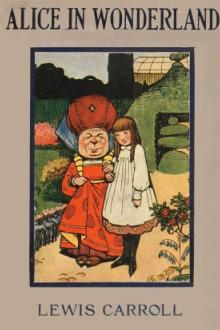Elson Grammer School Literature, book 4
Elson Grammer School Literature, book 4
Paul revere's ride -- The leap of Roushan beg -- The charge of the light brigade at balaklava -- The diverting history of john gilpin -- How they brought the good news from ghent to aix -- Incident of the french camp -- Herve riel -- The bugle song -- The brook -- Song of the Chattahoochee -- The cataract of lodore -- The bells -- Annabel lee -- Opportunity -- To a waterfowl -- The skylark -- To a skylark -- The cloud -- Apostrophe to the ocean -- The destruction of sennacherib -- The eve before waterloo -- Song of the greek bard -- Marco bozzaris -- The burial of sir john moore -- Absalom -- Lochinvar -- Parting of marmion and douglas -- For a' that and a' that -- Mercy, The Merchant of Venice -- The seven ages of man, As You Like It -- Polonius's advice; Man; Hamlet's soliloquy, Hamlet -- Reputation, Othello -- Wolsey and Cromwell, King Henry VIII -- Cassio and Iago, Othell -- Rip van winkle -- The voyage -- The great stone face -- My visit to niagara -- A Descent into the maelstrom -- The raven -- Evangeline: a tale of acadie -- The building of the ship -- Snow-bound -- The ship builders -- The chambered nautilus -- The deacon's masterpiece; or the wonderful "one-hoss shay" -- Old ironsides -- The boys -- The last leaf -- The vision of sir launfal -- Yussouf -- The marshes of Glynn -- Regulus before the Roman senate, by Sargent -- The return of Regulus; Spartacus to the gladiators, by Kellogg -- Merit before birth, by Sallust -- Rienzi's address to the Romans, by Mitford -- Emmet's vindication, by Emmet -- King Phillip to the white settler, by Everett -- The capture of Quebec, by Parkman -- England and her colonies, by Burke -- The way to wealth, by Franklin -- Speech on a resolution to put Virginia into a state of defence, by Henry -- The man without a country, by Hale -- Love of country, by Scott -- Napoleon Bonaparte, by Phillips -- The true grandeur of nations, by Sumner -- The evils of war, by Clay -- Peace, the policy of a nation, by Calhoun -- The first settlement of new england; Supposed speech of John Adams, by Webster -- South Carolina and the union, by Hayne -- Reply to Hayne, by Webster -- Dedication speech at Gettysburg, by Lincoln -- Lincoln, the great commoner, by Markham -- O Captain, my captain -- Farewell address, by Washington -- The memory of our fathers -- The American flag -- Warren's address at the battle of bunker hill -- Columbus -- Recessional--a victorian ode -- A definition of a gentleman.
Book Excerpt
individuals, yet experience shows that within
a note or two, we all use the same keys in expressing the same states of
minds. The question for us is, what determines the key? It can be set down
as a fixed principle, that controlled mental states are expressed by low
keys, while the high keys are the manifestation of the less controlled
mental conditions. Drills in inflections as such are of very little value,
and potentially very harmful. Most pupils have no difficulty in making
proper inflections, so that for them class drills are time wasted; for
those whose reading is monotonous, because of lack of melodic variety, the
best drills are those which teach them to make a careful analysis of the
sentences, and those which awaken them to the necessity of impressing the
thought upon others. We have learned that when a pupil has the proper
motive in mind and is desirous of conveying his intention to another, a
certain melody will always manifest that intention. The melody, then, is
the criterion of the pupil's pur
Editor's choice
(view all)Popular books in Young Readers, Fiction and Literature, Short Story Collection
Readers reviews
5.0
LoginSign up
A very useful collection of books.
- Upvote (0)
- Downvote (0)

 Free Download
Free Download























-itok=vcKIB5v1.jpg)